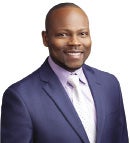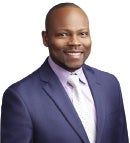When we think about what future business leaders will need to thrive in a world of constant change, we must consider empowering them with the personal skills to help them navigate an uncertain future. Who exactly are tomorrow’s business leaders? They are the students who are enrolled in elementary, middle, and high school.
Get Instant Access to This Article
Subscribe to Worcester Business Journal and get immediate access to all of our subscriber-only content and much more.
- Critical Central Massachusetts business news updated daily.
- Immediate access to all subscriber-only content on our website.
- Bi-weekly print or digital editions of our award-winning publication.
- Special bonus issues like the WBJ Book of Lists.
- Exclusive ticket prize draws for our in-person events.
Click here to purchase a paywall bypass link for this article.
When we think about what future business leaders will need to thrive in a world of constant change, we must consider empowering them with the personal skills to help them navigate an uncertain future. Who exactly are tomorrow’s business leaders? They are the students who are enrolled in elementary, middle, and high school.

These are the young people who are thinking about future career choices in the midst of a pandemic and political unrest, who are considering a future to be disrupted by technology. These future startup founders and business leaders need an entirely new set of skills, ones promoting resiliency, self-confidence, purpose, and awareness. They require the social and emotional tools to help them become adaptable as they navigate the constant change and growth of an interconnected world of global commerce.
As we enter the second wave of COVID-19, these students are adjusting to hybrid learning programs as educators continue attempts to improve the educational environment.
One way to help young people develop an entrepreneurial spirit is to directly address their social emotional learning skills. Social emotional learning is how people understand and manage their emotions, set and achieve positive goals, feel and show empathy for others, establish and maintain positive relationships, and make responsible decisions.
While we do not know the exact impacts, we do know children’s academic performance is deteriorating during the pandemic, along with their progress on other social and emotional developmental skills. Tomorrow’s leaders must be strong, determined, and self-assured.
Given the various ways in which the crisis has widened existing socioeconomic disparities and how these disparities impacted educational outcomes, educational inequities are growing. According to studies by the Economic Policy Institute, the pandemic has exacerbated well-documented opportunity gaps putting low-income students at a disadvantage. Despite COVID-19’s negative impact on our children, there is a solution to mitigate some of the impact to a degree: social-emotional learning programming.
The program I’ve created, Empowering Confident Youth, was born from a piece missing in many educational systems. ECY hopes to fill that gap during the pandemic and beyond. The curriculum empowers young people, helping them to hone in on their individual strengths while promoting an entrepreneurial spirit and meaningful relationships with others. I am offering it free to all teachers, parents, and students in Worcester Public Schools. Additionally, the YMCA of Central Massachusetts has signed a partnership, with plans to pilot the middle school program start in January.
The core principles of ECY, combined with practical knowledge, know-how, and application, will help young people develop skills, self-confidence, ambition, and passion for a life of hard work, purpose, and service.
Jean Paul Paulynice is the founder of the Worcester education startup Empowering Confident Youth.

